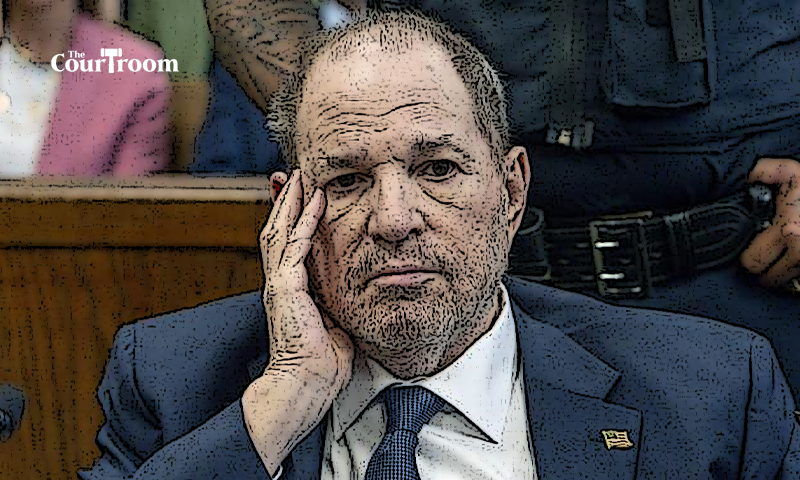The New York State Senate has recently passed a bill that permits the use of a defendant’s prior sexual offenses as evidence in sex crime cases. With a decisive 55-4 vote, the bill now moves to the State Assembly for further consideration.
This legislative action was spurred by the New York Court of Appeals’ decision to overturn Harvey Weinstein’s rape conviction.
The New York State Senate ruled that the trial judge had wrongly allowed testimony from women about assaults that were not part of the charges against Weinstein. According to the court, these testimonies did not serve any material non-propensity purpose and unfairly enhanced the credibility of the complainants while harming Weinstein’s character before the jury. Additionally, the court criticized the allowance of cross-examination on uncharged alleged bad acts, which were irrelevant to Weinstein’s credibility in court and only served to prejudice the jury against him.
Under current New York law, evidence of prior bad acts is admissible in limited scenarios, such as demonstrating motive or intent, primarily based on judicial precedent rather than clear statutory rules. The proposed bill seeks to formalize the admissibility of prior sexual offenses, making it possible to consider such evidence even if the allegations are not directly related to the present charges. However, judges retain the authority to exclude this evidence if it is deemed to cause undue prejudice against the defendant.
This bill is designed to align New York’s standards with the federal rules of evidence, which permit the use of other sexual assault evidence in sex crime cases if relevant. More than a dozen states, including California, Texas, and Illinois, have adopted similar provisions. For example, California law allows evidence showing a defendant’s propensity to commit sexual assault, thereby broadening the basis for admitting prior bad acts.
Proponents of the bill argue that allowing evidence of prior sexual offenses can establish a pattern of behavior by the accused. Assembly Member Amy Paulin, a bill sponsor, highlighted the necessity of such evidence in trials that often depend heavily on the survivor’s testimony, which can be intensely scrutinized. Paulin stated, “Sex offense trials often rest on the testimony of the survivor, whose credibility is then attacked. That’s why patterns of behavior must be allowed as evidence. Sexual assault survivors have already gone through enough trauma. Now that the Weinstein case has been overturned, it’s more important than ever to pass this bill.”
Supporters also contend that the legislation is vital for protecting victims’ rights and ensuring that relevant evidence is not unfairly excluded. Senate Deputy Leader Michael Gianaris, another sponsor of the bill, emphasized its importance for allowing survivors to share their experiences when their abuser is charged with a new sexual offense. Gianaris remarked, “Victims of sexual assault deserve the ability to share their experiences when their abuser is charged with a new sexual offense. This proposal would help brave survivors tell their stories and bring New York in alignment with federal rules of evidence.”
However, critics worry about the potential impact on defendants’ rights and the fairness of trials. The Legal Aid Society has cautioned that the bill could lead to significant unfair prejudice against defendants, confuse juries, and foster assumptions about a defendant’s propensity to commit the crime on trial if they have a history of similar offenses. The organization argued that the bill could undermine fairness and due process, describing it as a dangerous shift away from the principles of criminal justice.
Harvey Weinstein, currently serving a sentence in New York following a separate conviction in California for similar charges, maintains his innocence, asserting that all sexual activities were consensual. The Manhattan district attorney’s office plans to retry Weinstein as early as September, potentially using the new legal standards if the bill is enacted. Emily Tuttle, deputy director of communications and senior advisor for the office, stated, “We will do everything in our power to retry this case, and remain steadfast in our commitment to survivors of sexual assault.”
The passage of this bill marks a significant change in the legal approach to sex crimes in New York, aiming to align the state more closely with federal standards and practices in other states. It highlights a broader trend toward emphasizing the testimony and experiences of sexual assault survivors in the judicial process, while carefully balancing the rights of both victims and defendants.
Share your news, articles, deals, columns, or press releases with us! Click the link to submit and join our platform today.


